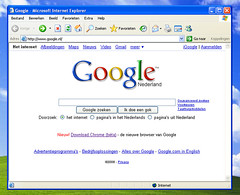2013 Local SEO Predictions. Content Marketing is Phooey.
I am going against the general concord in SEO circles this year (what a shock right?) on what will work for SEO firms in 2013, and make a big statement. Links matter more than ever, and are in fact (after your on site work) the absolute most important aspect to any successful SEO program.
There is a ton of content marketing, and social signal pundits in SEO since Panda and Penguin marched into town burning and destroying all search rankings developed with sophomoric and thoughtless tactics, that will tell you the only path to high Internet traffic is through a massive content marketing strategy. The mass hysteria that followed has been epic.
I have read a great volume of blogs’ and posts on “how to “implement SEO now that every thing has changed. The truth is, very few “things” have changed, and authors are simple feeding a hungry and worried Internet Marketeering community.
I recently posted on a very popular blog (about local SEO issues) that the loss of keyword information from Google was not a really big deal for local services. I mean, if you need a keyword tool to tell you how people find a local Plumber, you may want to get another gig. SEO is not for you in 2013. Most will use the word Plumber. Maybe add service, company, a city, I mean there just are not all that many combo’s to figure out. In my experience, what is important in local internet visibility is not the combination of keywords a prospect uses, but how they use those combinations in search. Most SEO firms won’t even report (because there is no automated tool to do so) how a site ranks in important local zip codes with no local intent term used. And this is becoming the MAJOR search type for local services.
This race to content now being promoted as the SEO tactic de jour may be exactly what we think it is when it comes to non local sites. For local sites, and local SEO, which is where the vast majority of us plow the ground, it is in many cases complete phooey. Not that great content is phooey, just that this obsession with great content as the number one all in one SEO device is phooey. Google wants a site to communicate the information a person goes to that site for (I am guessing). A local plumber doesn’t need to be the Robert Frost of the copper pipe crowd, to rank well. They just need to have a well designed 4 or 5 page site, giving people what they want to read and see when they get there.
Example: In the last 4 months we have ranked a site with one page of actually content (two pages total) for a local intent keyword, by adding a few local back links, using an emd, and ummm that was it. Does it have much competition? Yes, some. Would it ever have a chance of ranking on a national search? No. And that’s the point; Local SEO is to National SEO what Physics is to the M theory. They both deal with universe in completely different ways.
So for Local SEO in 2013:
- Backlinks to your site will continue to be the number one (off site) ranking factor.
- On Site SEO will continue to be important.
That’s it.
PS A backlink doesn’t mean a listing on a horrible directory that no one ever visits. It means a mention of your site on a site that real people who might be interested in your service visit, and may actually click through to your site based on that visit. It may also mean an advertisement on a highly promoted site, or a mention on a popular face book or linked in page. This hasn’t change in the last 2 years. Spammy directories and link wheels where never good for SEO. If you were using those and keyword stuffing and all of that, then I will agree with you, your SEO has changed a lot.
By Mike Bayes























